Archive
02 April 2020
The strength of collagen
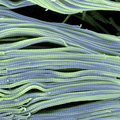
Collagen is the glue that holds our bodies together. It can be found in our skin, bones, muscles, cartilage, ligaments, hair, nails - in short, in almost every tissue in our body. In some places, for example in the skin, collagen proteins form networks that are very elastic. But why these networks are so elastic has so far been unclear. Researchers from Delft University of Technology, AMOLF and Wageningen University & Research have now discovered that the number of 'intersections' plays an important role. Between three and four connections per intersection is ideal. In fact, more connections makes the collagen networks less elastic. The new insights can be used, among other things, to repair damaged or aged tissue, such as cartilage or skin, and to grow new skin tissue for burn victims.
31 March 2020
TU Delft corona related research
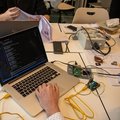
We've brought together some of the research being done at TU Delft bearing a relation to the coronacrisis.
31 March 2020
ERC Advanced grants for TU Delft researchers
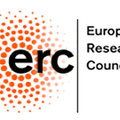
Three TU Delft researchers have been awarded an ERC Advanced Grant. Cees Dekker, Jerry Westerweel and Lieven Vandersypen will receive this European grant, which is awarded to five-year projects conducted by internationally established research leaders.
27 March 2020
3D printed component makes snorkel mask useful for medics
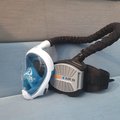
IDE researchers, in collaboration with physicians and industry, designed a unique 3D printed connector to connect an ordinary snorkel mask to a filter system. This makes the snorkel mask usable as a protective mask for medical personnel. The design has been made available worldwide on Thingyverse.
27 March 2020
Looking into the earth with sound
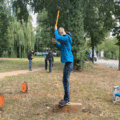
A student is hitting a metal plate with a hammer while another is looking at a computer screen in a nearby tent. What (on earth) is happening here? ‘We’re studying the earth’s interior,’ PhD and geophysicist Myrna Staring says.
20 March 2020
TU Delft works on reusable surgical masks with Reinier de Graaf and VSM

In the fight against the 'Corona shortage’ of face masks, John van den Dobbelsteen and Tim Horeman, researchers at the Department of BioMechanical Engineering department, and with lab manager Rob Luttjeboer, developed a successful way to test reused sterilised surgical masks and surgical masks made of new materials.
19 March 2020
TU Delft Master’s students start initiative for developing ventilators
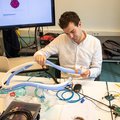
This week, under the leadership of Director of Studies for Technical Medicine Professor Jaap Harlaar, a group of Master’s students in Technical Medicine launched the OperationAIR initiative with the objective of developing a simple and relatively inexpensive ventilator as quickly as possible.
19 March 2020
Time to spare? Take an online course!

The coronavirus crisis means that many people have little or no work right now, or extra time on their hands because of cancelled appointments. For some of these people, this might be the perfect time to take an online course.
16 March 2020
Millions of euros to improve to improve the Rhine-Alpine freight corridor

Container ships that aren’t fully loaded, congested locks resulting in long waits for vessels, suboptimal navigation of ships on rivers and fully loaded ships that cannot cope with low water levels. These are common problems on inland waterways. The Horizon 2020 programme ‘Novel inland waterway transport concepts for moving freight effectively’ (NOVIMOVE) is going to use a European grant of almost 9 million euros to conduct research on how to improve the logistics of this transport system.
10 March 2020
Researchers organically engineer solar cells using enzymes in papaya fruit
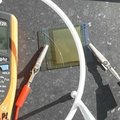
Titanium dioxide (titania) thin films are commonly used in various types of solar cells. The fabrication methods that are currently used to create such titania films require high temperatures, as well as expensive, high-end technologies. Researchers at Delft University of Technology (TU Delft) have now developed a fully organic method to engineer porous titania thin films at relatively low temperatures.
10 March 2020
The Digital Human Capital Agenda of The Hague for ‘digital talent’
The City of The Hague and over twenty businesses and educational institutions will jointly educate, train and re-train thousands of people as ‘digital talents’
04 March 2020
Zigzag DNA
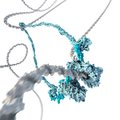
DNA in a cell can normally be compared to spaghetti on one’s plate: a large tangle of strands. To be able to divide DNA neatly between the two daughter cells during cell division, the cell organises this tangle into tightly packed chromosomes. A protein complex called condensin has been known to play a key role in this process, but biologists had no idea exactly how this worked. Until February 2018, when scientists from the Kavli Institute at Delft University of Technology, together with colleagues from EMBL Heidelberg, showed in real time how a condensin protein extrudes a loop in the DNA. Now, follow-up research by the same research groups shows that simple bundling up such loops is by no means the only way condensin packs up DNA. The researchers discovered an entirely new loop structure, which they call the 'Z loop'. They publish this new phenomenon in Nature on 4 March, where they show, for the first time, how condensins mutually interact to fold DNA into a zigzag structure.
04 March 2020
TU Delft proud of high positions in the global QS Subject Ranking
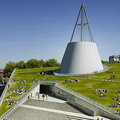
The World University Rankings by Subjects 2020, published today, places TU Delft in 15th place in the broad category of Engineering & Technology.
03 March 2020
Royal HaskoningDHV opts for TU Delft Campus
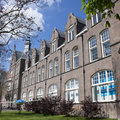
Royal HaskoningDHV opens a branch for 800 employees in Delft, an international hub in the field of technology, innovation and knowledge development.
02 March 2020
The magnet that didn’t exist
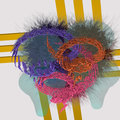
28 February 2020
The voice of the patient
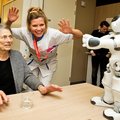
The use of technology is unavoidable to keep healthcare affordable and accessible, but its implementation must go hand in hand with respect for patient values, says trauma surgeon Maarten van der Elst. He has been appointed to TU Delft’s Reinier de Graaf chair for the coming five years and is holding his inaugural address on 4 March.
26 February 2020
TU Delft climate arboretum
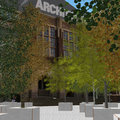
Wednesday 18 March, National Tree Day (Nationale Boomfeestdag), will see the opening of the first climate arboretum at TU Delft.
25 February 2020
‘Uncertain’ ice shelves in Antarctica in NWO-Large collaboration
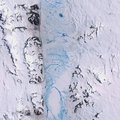
TU Delft is joining forces with Utrecht University, the KNMI, NIOZ and the ULB (Brussels) to investigate the role of ice shelves in the Antarctic in sea-level rise.
24 February 2020
Two Delft projects obtain funding within NWO – GROOT
TU Delft is in the lead in two of the projects: HiRISE, aimed at charting the current state of Antarctica’s ice shelves, and CURE, which looks at sustainable management of waste management sites.
24 February 2020
Measuring, predicting and managing public transport disruptions

Disruptions to public transport caused by breakdowns or accidents happen on a daily basis. Researcher Menno Yap is developing a method to reduce the impact they have on travellers.
20 February 2020
Monitoring the development of a tumour using the memory of bacteria
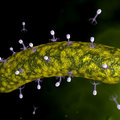
19 February 2020
Cryo-chip overcomes obstacle to large-scale quantum computers
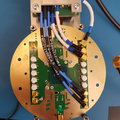
QuTech has resolved a major issue on the road towards a working large-scale quantum computer. QuTech (a collaboration of TU Delft and TNO), together with Intel, has designed and fabricated an integrated circuit that can operate at extremely low temperatures when controlling qubits, the essential building blocks of a quantum computer.
14 February 2020
New TU Delft Code of Conduct

How do we address our responsibilities towards each other and to society? TU Delft finds it important for employees and students to keep talking to each other about this issue and take action if we feel it is necessary.
13 February 2020
Health problems from air pollution often originate from distant emissions

Air pollution, and the associated premature deaths, are strongly affected by distant emission sources. In the US about half of the premature mortality occurs outside the state that produces the emissions.
12 February 2020
Variations in precipitation at the North Pole set to increase sharply
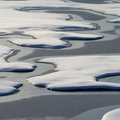
The climate warms, even more so in the Arctic, and with it there will be more precipitation.
10 February 2020
New report on digital credentials of academic achievements

Technology has the potential to profoundly change higher education. However, the way that academic credentials are issued and managed has not yet taken advantage of the possibilities of digital technology, according to a new report authored by the Digital Credentials Consortium. The consortium is working on the design of verifiable digital academic credentials.
06 February 2020
TU Delft and the National Library of the Netherlands launch Future Libraries Lab

TU Delft and the Royal Library of the Netherlands (KB) are launching the Future Libraries Lab
06 February 2020
NWO grants research proposal On the Move: Transition towards Sustainable Mobility
NWO has granted the research proposal “On the Move: Transition towards Sustainable Mobility”. This is a joint project of Radboud Universiteit Nijmegen and TU Delft. In collaboration with public stakeholders and private companies, this project develops and tests an innovative approach that systematically deals with uncertainties in a mobility system that needs to become more sustainable.
16 January 2020
New software to better understand conversations between cells
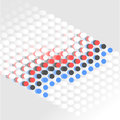
One of the most fascinating and important properties of living cells is their capacity for self-organization. By talking to each other cells can, among other things, determine where they are in relation to each other and whether they need to turn certain genes on or off. Thus, large groups of cells are able to work together and organise into all kinds of tissues. Researchers at Delft University of Technology have now developed software that can predict and visualise conversations between cells on the basis of the molecules involved.
14 January 2020
Reliable and extremely fast quantum calculations with germanium transistors
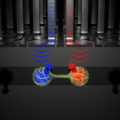
Transistors based on germanium can perform calculations for the future quantum computer.
09 January 2020
€3.3m research funding to establish trust in the internet economy

Sovereignty4Europe, an interdisciplinary research project that aims to start an online community of 50,000 internet users to evaluate the principles of an ‘internet of trust’, has received €3.3 million of research funding.
19 December 2019
Affordable and user-friendly renovation concepts

The new consortium IEBB stands for integrated energy transition for existing buildings and has received a 13,8 million euro grant to develop affordable and user-friendly renovation concepts in the coming years. Researchers from the faculties of Architecture and the Built Environment, Industrial Design Engineering and Applied Sciences at TU Delft are developing the necessary knowledge for, amongst others, innovative renovation concepts, digitisation of the renovation process, optimisation of heat pumps and energy performance of buildings, chain innovation and implementation.
18 December 2019
QuTech realises ‘MRI on the atomic scale’
Researchers at QuTech, a collaboration of TU Delft and TNO, have developed a new magnetic quantum sensing technology that can image samples with atomic-scale resolution.
18 December 2019
Professor Wim van den Doel will lead Leiden-Delft-Erasmus partnership
17 December 2019
Building offshore wind turbines quickly and gently without disturbing marine life

How can you build foundations for offshore wind turbines creating as little disturbance as possible?
16 December 2019
TU Delft works to create a natural gas-free built environment
The consortium WarmingUp, a new collective endeavouring to accelerate the creation of cost-effective and sustainable heating networks, has been awarded a grant worth €9.3 million by the Netherlands Enterprise Agency (RVO) as part of its Long-Term Mission-Driven Innovation Programme (MMIP). Under the leadership of TNO, TU Delft has joined forces with other key players in the field of affordable and sustainable heat to form WarmingUp. The partners themselves are investing €9.5 million in its research programme.
12 December 2019
Millions for large-scale energy storage research
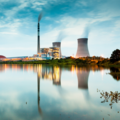
Paulien Herder, professor in Energy Systems at Delft University of Technology (TU Delft), and her team in the interdisciplinary consortium RELEASE (Reversible Large-scale Energy Storage) have received funding from the Dutch Research Council (NWO) totalling over € 10 million for research into large-scale energy storage. NWO is investing € 39 million in five large, interdisciplinary research consortia within the Crossover programme, with the aim of helping to meet various social and economic challenges.
12 December 2019
TU Delft selected as ELLIS unit for AI and machine learning
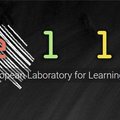
The European Laboratory for Learning and Intelligent systems (ELLIS) have selected TU Delft for establishing one of its units for European research excellence in Artificial Intelligence (AI) and machine learning.
11 December 2019
A boost of €4,1M for joint proton therapy research TU Delft, Erasmus MC and LUMC

The next round of funding has been awarded to 13 researchers within the HollandPTC R&D consortium.
10 December 2019
Greenland ice losses rising faster than expected
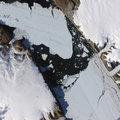
Greenland is losing ice seven times faster than in the 1990s and is tracking the IPCC’s high-end climate warming scenario, according to the Ice Sheet Mass Balance Inter-comparison Exercise (IMBIE) Team.